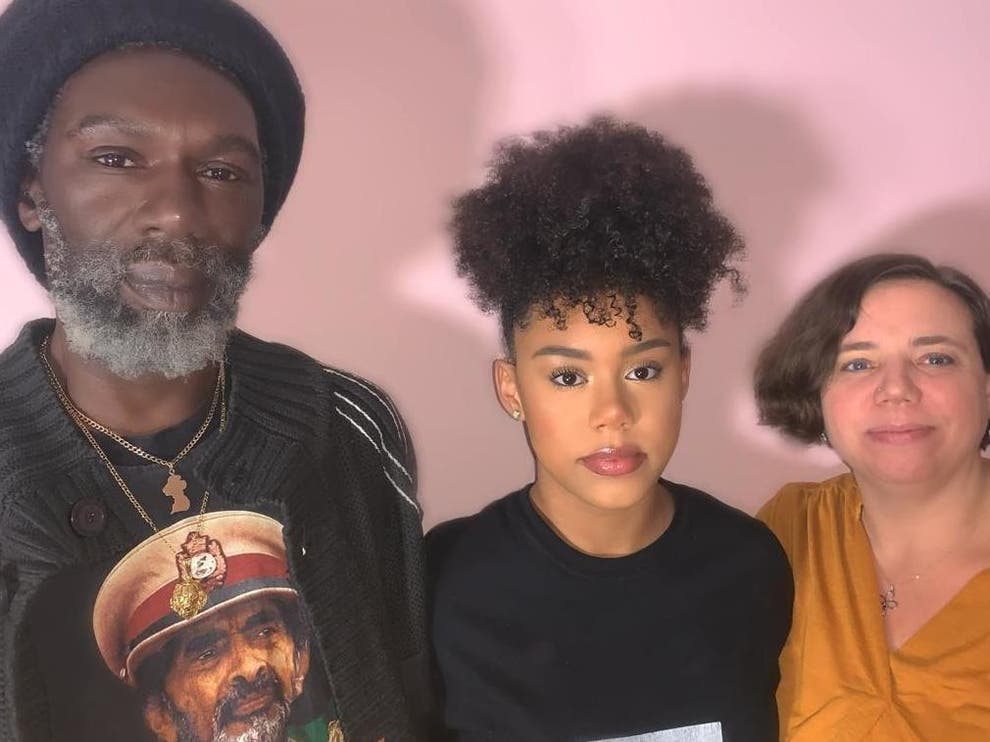Black hair discrimination must be banned, equalities watchdog told
Numerous cases of hair discrimination against Black people have hit the headlines in recent years

Your support helps us to tell the story
From reproductive rights to climate change to Big Tech, The Independent is on the ground when the story is developing. Whether it's investigating the financials of Elon Musk's pro-Trump PAC or producing our latest documentary, 'The A Word', which shines a light on the American women fighting for reproductive rights, we know how important it is to parse out the facts from the messaging.
At such a critical moment in US history, we need reporters on the ground. Your donation allows us to keep sending journalists to speak to both sides of the story.
The Independent is trusted by Americans across the entire political spectrum. And unlike many other quality news outlets, we choose not to lock Americans out of our reporting and analysis with paywalls. We believe quality journalism should be available to everyone, paid for by those who can afford it.
Your support makes all the difference.A group of parliamentarians, organisations and writers have urged the Equality and Human Rights Commission to ban hair discrimination in schools, places of work and wider society across the UK.
In a letter, seen by The Independent, and arranged by the All-Party Parliamentary Group for Race Equality in Education, the signatories argue that such guidance could potentially encourage the government to update the Equality Act 2010 to recognise hair as a protected characteristic, thus making this form of racism easier to sanction.
Those supporting this move include include Lord Simon Woolley, Wera Hobhouse MP, Emma Dabiri, GLAMOUR magazine, Dove and The Halo Collective. Ruby Williams, a London student who was told that her Afro-texture hair was ‘too big’ and violated her secondary school’s uniform policy, is also among the group of signatories.
“It is unequivocal that for far too long, institutional policies have been allowed to push Black children, adults and those of Black heritage to conform and mirror Eurocentric hairstyles, often damaging their natural hair, confidence, and self-esteem in the process,” the two-page document reads.
The Equality Act Review recently found that hair discrimination is a form of racial discrimination and urgently requires legal recognition, while further research shows that more than half of Black children have been sent home from school due to wearing their hair naturally or in a protective style.
A research study found that over half (52 per cent) of Black people with afro hair said that discrimination against their natural hair had negatively affected their self-esteem or mental health.

L’myah Sherae, Founder of the All-Party Parliamentary Group for Race Equality in Education, told The Independent: “I’ve experienced hair discrimination myself, and it devastates me that not only are there many adults, but there are also countless children across the UK experiencing similar forms of racial discrimination.
“That’s why I’m so glad to have been able to work with Kim Johnson MP and the Halo Collective to send this letter to the Equality and Human Rights Commission.
“The fact that so many well-known names, brands and organisations have co-signed it shows that the demand is truly there on the ground – we hope that the Commission commits to taking steps in the right direction.”
Numerous cases of hair discrimination against Black people have hit the headlines in recent years.
In July 2021, FINA, the international swimming federation, rejected an application from the Black-owned swimming cap company Soul Cap to use their products in the Tokyo Olympic Games.
Soul Cap is designed specifically to protect dreadlocks, weaves, and thick and curly hair – styles typically adopted by Black communities.
FINA’s justification for this move was that the caps did not “fit the natural form of the head”. Critics of that decision felt the rejection would affect the access Black swimmers have to excel in the sport.
Campaigners hope that updated guidance from government would improve the UK’s understanding of “other forms of racism” and lead hopefully towards the dismantling of systemic discrimination in the UK.
Has this affected you? Please get in touch. Contact us by clicking here
Join our commenting forum
Join thought-provoking conversations, follow other Independent readers and see their replies
Comments